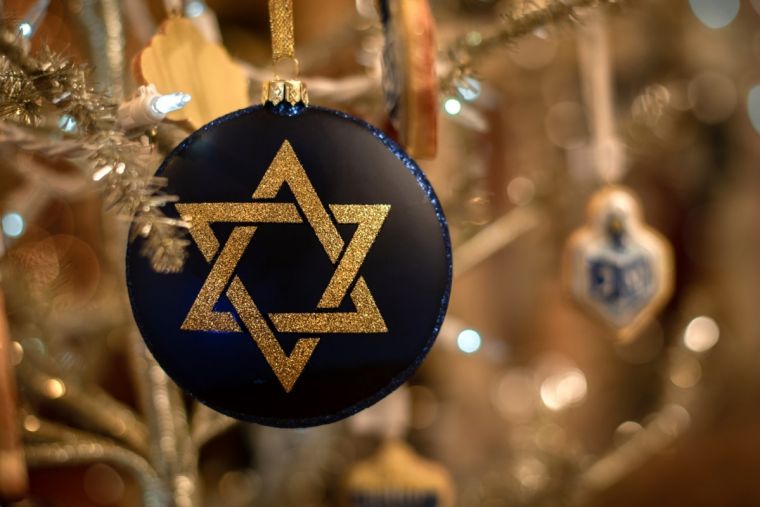Hanukkah and what it has to do with Joseph and Judah

This week in the UK, the first person in the world was vaccinated against Covid-19. Being the first to allow yourself to be vaccinated at the age of 90 is to take a very brave step into the unknown. And this is what Jews and Christians are celebrating at this time.
Chanukah - also known as Hanukkah, the Jewish Festival of Lights - comes before Christmas this year, and always coincides with the biblical stories of Joseph. Chanukah means dedication. Neither word is really English, but both ultimately mean 'to give'.
Let's look at the origins of the word 'dedication'. When I was young, Latin was very important at school and compulsory until the age of 16 at least. And the significance of Latin was emphasized even more at home. My father was something of a whizz at this ancient language, reciting off reams of speeches by Roman Emperor, Julius Caesar, most of them highly political, and all of them memorable!
In those days, learning by rote was taken for granted in all spheres: poetry, music, spelling and foreign languages. So, as part of the Latin class, we all became used to intoning the four relevant parts of the word that has come down to us as 'dedication'.
These are 'do, dare, dedi, datum'.
I would like to reflect on what 'do, dare, dedi, datum' have meant to me and to so many others throughout our lives:
Do ('I give') is pronounced as in the phrase 'doe a deer – a female deer' – like the first note do in the musical scale, it starts things off.
Dare ('to give') is pronounced like 'far way', but looks to us like that bold first step 'to dare' – taking the first step is a leap of faith.
Dedi ('I have given'). The first two steps now become internalized.
Datum ('Having been given'). The deed is now fact; it is part of the world – hence the plural 'data', used so much in our own contemporary world.
The secret of Chanukah is rededication. This is maybe so much more obvious to American Jews who will have celebrated Thanksgiving, often at around the same time. And on one occasion at least, the fourth Thursday in November did indeed coincide with the 1st night of Chanukah.
Chanukah is the time of dedication – of giving and of bringing light to the world in literally its darkest moment, hence the menorah candle. But it is also a tale of how Judaism is both a political religion and a spiritual religion, a civic religion, a social religion, an educational religion and most of all, a giving religion.
Emphasizing one attribute can lead to imbalance. And this is what happened to the founders of the Chanukah story. The original Maccabees who rededicated the Jerusalem Temple which had become paganized by the Syrian-Greek king ruling over Eretz Israel in the second century BCE, later becoming the Hasmonean ruling dynasty, which ended up in grief.
If we read the stories of Joseph at Chanukah time, why does Judah (not Joseph) become the precursor of the Messiah? The Joseph stories provide a salutary tale.
The reason is that Joseph had all the best childhood qualifications. He was the favourite son of Jacob/Israel's favoured wife, Rachel; he had been in charge of the Egyptian empire; he had saved everyone from famine, and he also looked the part.
But, very unfortunately, the Josephs of this world often harbour delusions of grandeur. People can start off well and then simply get stuck in a rut. Being 'righteous' simply isn't good enough. Truly great people change the world and that is what Judah did.
Judah was the son who developed and morphed into the Jewish religion after which Jews are named. And yet, he was only the fourth son of the less favoured wife, Leah. Judah means 'thankfulness', and this is what dedication is. Judah (dedication) rather than Joseph (increase).
Judah symbolizes 'bottom up' rather than 'top down' rulership.
People who 'give' and who have internalized 'do, dare, dedi, datum', often without knowing Latin at all, become those great educationalists, therapists, doctors, lawyers and teachers who are open to all. There are not many of these, but at this time of year, when we hope that at last there is 'light at the end of the tunnel', I think of Viktor Frankel, who survived various concentration camps to write his great bestseller, Man's Search for Meaning.
May 2021 be a year of renewal and hope, for as the song goes: "Doe a deer, a female deer, ray, a drop of golden sun..."
Dr Irene Lancaster is a Jewish academic, author and translator who has established university courses on Jewish history, Jewish studies and the Hebrew Bible. She trained as a teacher in modern Languages and Religious Education.











